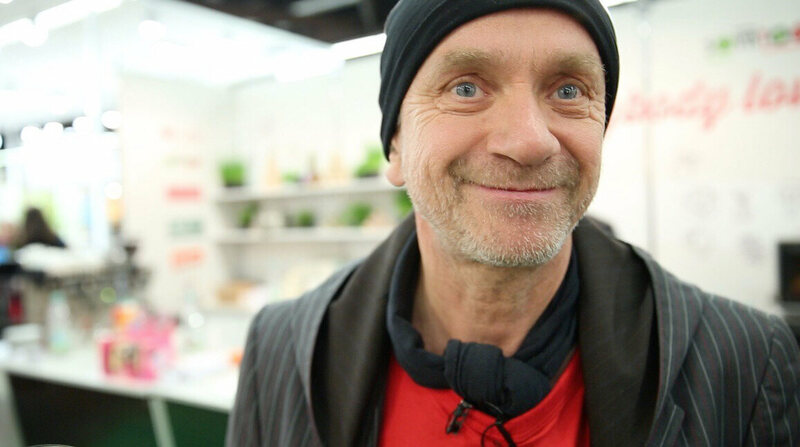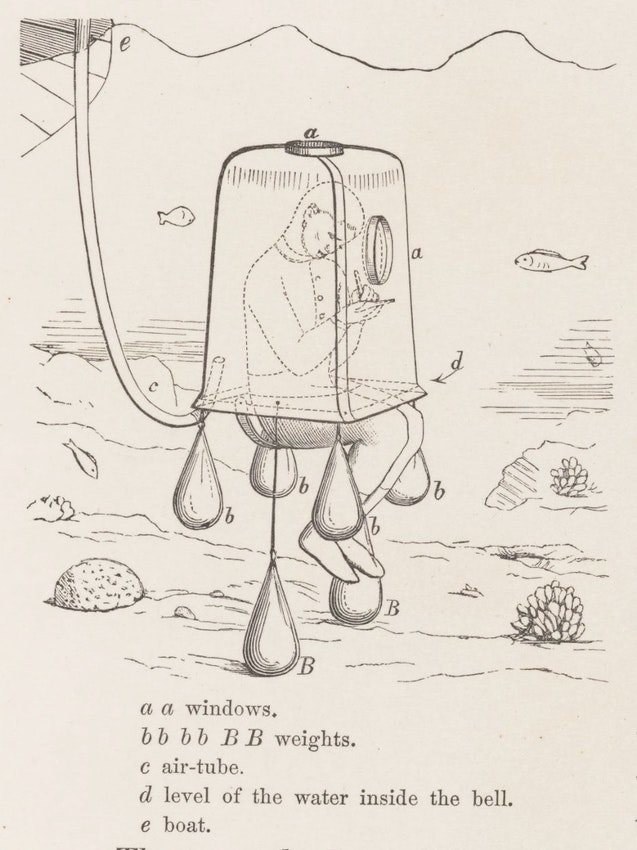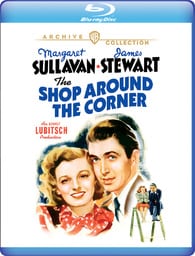To Earn His Crown, Germany’s Tofu King Had to Overcome Sausage and the Slammer
One evening in 1983, a pair of local police officers in the German city of Siegburg stopped by an old butcher shop to investigate reports of suspicious activity. Inside, they found three slightly scruffy twentysomethings with kilos of contraband. Bernd Drosihn, the ringleader, tried to object, but the officers confiscated the offending substances. After a stern reprimand, they handed over a letter announcing a preliminary investigation into the crime: making “Torfu.”
“Every week, we received a new prohibition order from every possible part of the country. The bureaucrats kept at it. Tofu made them completely crazy,” writes Drosihn in his book Tofu: From Bizarre Struggle to an Unassuming Food Source for the World. So crazy, in fact, that subsequent letters included warnings about Tuffo, Tofo, Tortuffo and Tartuffo. “They were so confused and panicked in their fear of any kind of change that they couldn’t manage to arrange four letters in order.”
Tofu had been a staple in China for nearly 2,000 years before Drosihn attempted to make it, but it was still largely unknown in Germany in the 1980s. At the time, both soy milk and nigari, a coagulant commonly used to make tofu, were illegal. As the largest milk producer in the European Union, Germany has a long history of protecting its dairy industry from both international competition and any ersatz products that might cut into sales. To this day, the legal battle continues over whether dairy substitutes made with soy or oat can be called “milk” at all. Until a court battle in 1989, around the time of the fall of the Berlin Wall, the dairy lobby managed to keep soy milk and derivatives such as tofu strictly verboten. Worse, to the average West German citizen of the time, tofu was a foreign oddity largely associated with anti-establishment types.

“Soy products were totally unknown back then,” Drosihn says. “After the free-spirited mentality of the late 1960s, all those stuffy German bourgeoisie values came back with a vengeance in the 1980s. Vegetarian products made by young hippies like us were quickly banned.”
One glance at Drosihn and his fellow conspirators would have confirmed the police officer’s worst fears. Shaggy-haired and with a penchant for rule-breaking, the tofu-makers fit the hippy stereotype perfectly. As Drosihn told the German television program Galileo years later: “legal, illegal, didn’t fucking matter—that’s how it was back then.” The complaints were so regular that members of the self-declared tofu collective dubbed their bureaucratic antagonists the Fleischbeamte, or meat police. At one point, local authorities threw Drosihn and one of his cohorts in prison.
“Honestly, I only spent a night in custody,” says Drosihn, now 61. “It wasn’t all that bad.”
If Drosihn sounds smug when he recounts the story these days, it’s with reason. As the head of TofuTown, the single largest tofu producer in the European Union, he loves to tell the tale of his clandestine beginnings. Today, he presides over a soy empire that generates more than €60 million in annual revenue. His three factories transform more than 30 million metric tonnes of soybeans into more than 100 products annually, including vegan currywurst, faux-chicken nuggets, and soy steaks. His company headquarters are located in the city of Wiesbaum on Tofustraße, literally “Tofu Street.” His success is so unrivaled that more than one German media outlet has dubbed him the “Tofu King.”
Despite his considerable wealth, Drosihn eschews Porsches and other trappings of capitalist success. He’s ditched the more flamboyant prints of the ‘70s and ‘80s, but still prefers a beanie to a suit. While the Tofu King celebrates his product’s widespread success, he’s proud of the fact that he was drawn to a plant-based diet long before it was trendy or even socially acceptable.
The United States has a long, complicated history of assimilating staple foods from diaspora cultures, while in Germany, the phenomenon is still fairly new. By the time Drosihn showed up, tofu would have been a familiar enough foodstuff to many Americans, a staple of the Moosewood Cookbook-owning set, yet few Germans had ever heard of it. This, despite the fact that the Austrian botanist Friedrich Haberlandt promoted soybeans as a crop in the 1870s. The nutritious legumes thrived in German soil, yet never really took off commercially.
“Germany, until very recently, was not considered an immigration country. That doesn’t mean that there weren’t new people coming in, especially in urban areas like Berlin,” says Ursula Heinzelmann, a Berlin-based food historian. “The difference is in the country’s cultural perception of itself. That’s how, perhaps in the U.S., new foodstuffs are adopted more easily, whereas [in Germany], it’s much more compartmentalized.”

Part of the reason that “German consumers… never fully embraced soy and its derivatives,” as Heinzelmann writes in Beyond Bratwurst: A History of Food in Germany, stemmed from the fact that, in the early 1900s, cheap, imported soybeans were typically used as either food for livestock or as substitutes for pricier meat products. Soybean oil and margarine were inferior substitutes for butter, while Maggi, which began manufacturing bouillon cubes and sauces in Germany in 1897, could be used to stretch a weak stock with a hit of artificial umami. A darker negative association may stem from the fact that the Third Reich promoted a fanatically healthy diet rich in wholegrain and soy. A Hitler Youth pamphlet even referred to soybeans as “Nazi-Böhnen” (“Nazi Beans”).
For the generation that had endured rationing under two World Wars, meat was a symbol of prosperity. As soon as the economy began to recover, survivors were eager to put the memories of scarcity behind them. It wouldn’t be until decades later that the consumption of schnitzel and pork knuckles would become a question of morality rather than means.
The police, the judges, and everyone else may have ridiculed a bunch of upstart kids making “torfu,” but Drosihn got the last laugh. His 40-year crusade to bring tofu to the masses made him a fortune and left an indelible mark on the eating habits of a nation.





